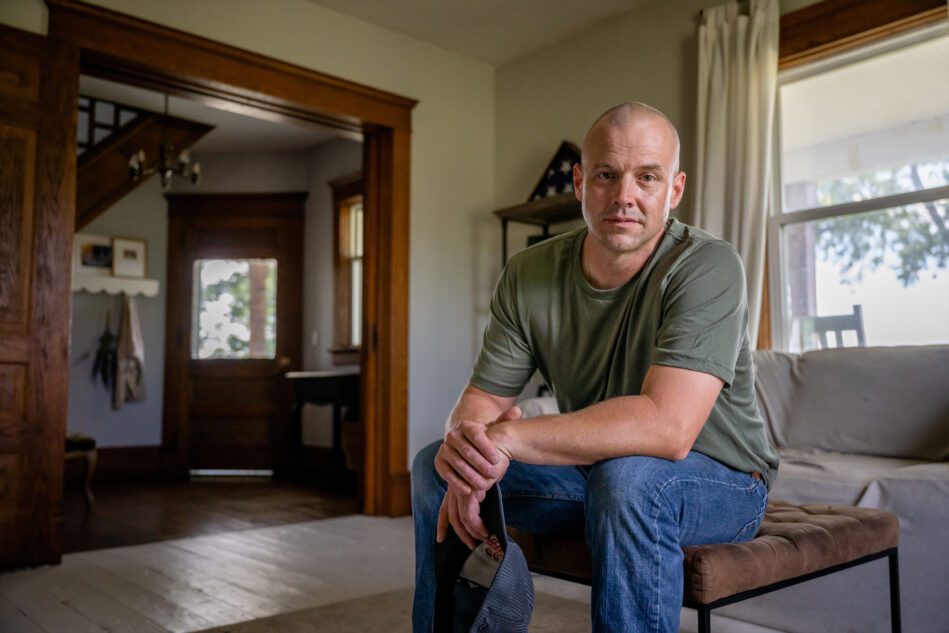On August 9, 2024, the U.S. Food and Drug Administration (FDA) rejected an application for MDMA, also known as ecstasy, to treat post-traumatic stress disorder (PTSD) in conjunction with talk therapy.1
The heavily anticipated FDA ruling on MDMA-assisted therapy came on the heels of a damaging assessment in June by an FDA advisory committee, in which experts said they didn’t have enough confidence in the evidence due to missing data and potential bias in the studies.2 The announcement caused an uproar by advocates of MDMA for mental health treatment. However, other experts criticized the absence of clinical trial best practices by the drug maker Lykos Therapeutics, which was behind the application.
“I was surprised to learn how problematic the submission had been,” says Joanna Kempner, Ph.D., a sociologist at Rutgers University who studies psychedelics. “I’m really disappointed on behalf of patients who have so much unmet need.”
Here’s what you need to know about MDMA, psychedelic-assisted therapy, and what went wrong in those trials.
Excitement and Hope: Early Studies of MDMA for PTSD
Experts have long noted the potential for psychedelic drugs like midomafetamine (MDMA) and psilocybin (the active ingredient in “magic mushrooms”) to help people with psychiatric conditions based on their use in Indigenous communities and underground groups.3 However, research into how psychedelics actually work and how effective they are was limited for many years, as the drugs were difficult to access legally. In recent years, advocates have successfully pushed for more research about their potential medicinal effects.
The Multidisciplinary Association for Psychedelic Studies (MAPS) is a nonprofit research and outreach organization that’s been supporting the study of psychedelic medicine since 1986. In 2014, MAPS started the company that became Lykos Therapeutics.
In 2017, the FDA granted MDMA-assisted therapy for PTSD breakthrough therapy status because while 6% people in the U.S. will have PTSD at some point in their lives, treatment options are limited4,5,6. Based on phase 2 trials completed by Lykos Therapeutics in 2020, MDMA-assisted therapy was expected to provide a meaningful improvement over existing options, by creating a significant reduction in the duration of PTSD symptoms (from two months to one).7 The FDA’s breakthrough therapy status allowed MAPS to receive extra support from the FDA throughout the development process and the promise of expedited review.
“With traditional regulatory approval, clinical benefit has to be shown. And with these accelerated approvals, there’s a lower bar,” says Lisa Cosgrove, Ph.D., a clinical psychologist who studies conflicts of interest in medicine. For example, some drugs that get accelerated approval only have to show that patients’ tumors shrank when they took the drug, not that those patients actually lived longer.
“We need to be very cautious about lowering that bar,” continues Cosgrove, “especially when you see the potential harms in the short term, long term, and then the potential for abuse and dependence.”
Signs of Trouble: Sexual Misconduct Calls Ethics of Trials Into Question
The first sign of trouble for MDMA-assisted therapy came in 2019, when MAPS acknowledged that two therapists had engaged in sexual misconduct with a patient during a phase 2 trial of the MDMA and talk therapy combination in 2015.8 Video evidence showed that the therapists, who were married to each other, had touched the subject inappropriately during treatment sessions while she was under the influence of MDMA. Later, one of the therapists continued an unethical sexual relationship with the patient. MAPS announced that it had terminated its relationship with the therapists in 2018.
Outside of the obvious trial misconduct, reports show that MDMA can heighten suggestibility, leaving patients possibly vulnerable to misconduct by therapists during MDMA-assisted therapy.9 Because of this, some experts worry that the industry needs more safeguards to prevent the sexual misconduct that occurred during the MAPS-sponsored trial from happening again.
Why Did the FDA Ultimately Reject MDMA for PTSD?
Before the FDA voted on the treatment’s approval, an FDA advisory committee—made up of industry experts such as doctors and pharmacists, alongside a consumer representative—met to review the clinical trial data. The advisory committee is designed to provide guidance to the FDA—but the FDA is not required to follow its recommendations. In June 2024, 11 committee members met, and 10 of those members agreed that there was not enough evidence to prove the benefits outweighed the risks of the treatment.2 Experts also voiced concern about the reported sexual misconduct and the trial methodology.
So why did the long-awaited push to approve MDMA ultimately fail? Lykos chose not to release the FDA’s letter detailing its reasoning, but in its press release said that the concerns echoed those the committee brought up in June.10
Those concerns also lined up with a report from the Institute for Clinical and Economic Review (ICER), an independent non-profit research group, which met in May and published a list of serious criticisms about the trials in June. ICER’s concerns included accusations of bias, unethical conduct, and flawed study design.11 The authors of the report cited “concerns about whether there were design choices that affected the interpretation of the results,” and “whether there was misconduct that could have influenced the validity of the trial outcomes or that raised questions about the safety of MDMA-assisted psychotherapy.”
Some examples of problems ICER identified in the MDMA clinical trials included:
- 40% of the participants had had experience with MDMA before the trial.
- Patients said they felt pressured to report only positive outcomes lest they be hindering an important movement.
- Patients in the trials may have been biased due to having close relationships with the individuals running the trials.
- It was easy to decipher who had and hadn’t received MDMA, meaning the trial was “functionally unblinded” introducing another possible source of bias.
- A lack of data on whether patients experienced “feelings of relaxation” or “euphoric mood,” which can be signs that the drug could be abused.
Additionally, on May 24, 2024, STAT published an investigation describing three trial patients who had experienced suicidal ideation during the trials. Those experiences weren’t reflected in the published data. In August, The Wall Street Journal reported that the FDA is currently investigating the possibility and extent of unreported side effects in the trial.12
“I hope one of the takeaways [from this rejection of MDMA-assisted therapy by the FDA] is that we need to make sure that the benefits clearly outweigh the harms of these drugs,” says Cosgrove.
What Comes Next for MDMA and Other Psychedelic-Assisted Therapies
Just a day after the FDA rejected Lykos’ application, the journal “Psychopharmacology” retracted three studies on MDMA whose authors included from Lykos-affiliated researchers due to protocol violations that they had not disclosed to the journal.13 Those violations weren’t discussed in detail, but the notice mentioned undisclosed conflicts of interest among the investigators and the previously mentioned sexual relationship between a patient and therapist. The studies were separate from the trials the company had submitted to the FDA for approval, but the retractions are another setback for Lykos.
Still, the experts who spoke to MedShadow agreed that the problems with Lykos’ trials were exclusive to Lykos, and would unlikely to prevent the development of other psychedelic treatments. “The VA is really excited about these medications,” says Kempner. “There’s so much in favor of these treatments moving forward.”
Additionally, there are other companies running clinical trials for medications such as psilocybin, the active ingredient in “magic mushrooms,” for conditions like PTSD and treatment-resistant depression. Lykos is also pushing back against the rejection, requesting that the FDA reconsider its request for another phase 3 trial and announcing new leaders to spearhead the plan to re-apply for FDA approval.14,15,16,17
“The FDA is there to assess safety and efficacy of medications, but they’re also there to make sure the public trusts that the medicine that they take is safe — and trust is a really foundational aspect of science,” says Kempner. “So moving forward, that’s what I would really focus on, making sure that people can trust the data.”






